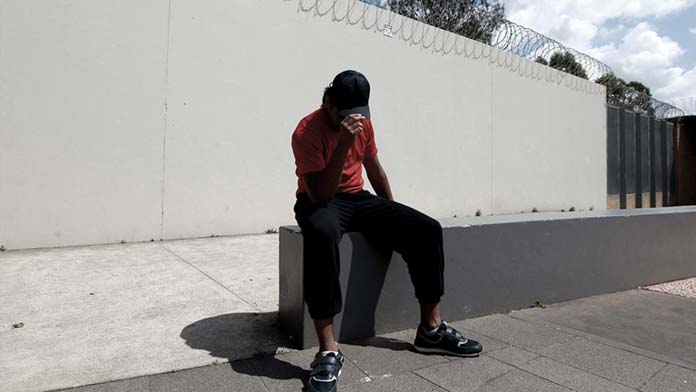State governments nationwide are stepping up their war on Indigenous kids, with measures that will see more children in jail.
NSW Labor Premier Chris Minns has imposed new law and order measures citing claims of rising “youth crime” in regional towns with large Indigenous populations including Dubbo and Moree. Last month he announced sweeping changes to bail legislation that will make it harder for those aged 14-18 to be approved for bail.
Alongside this is a new offence introducing an extra two years imprisonment for “advertising” an offence online, targeting kids who post video of themselves on social media.
These changes will see more young people in prison for longer. This will only make the problem worse.
There has been widespread criticism of the changes. Calling the move a “political stunt”, chief executive of the NSW Aboriginal Legal Service (ALS), Karly Warner, warned that, “Aboriginal children are going to bear the consequences”.
“Throwing our children in jail will actually make crime worse, not better. Locking up children has never worked and will lead to devastating outcomes for communities, families and those children,” she said.
Already more than half of the 4394 children sent to prison in 2023 in NSW were Indigenous.
There has also been significant dissent inside the Labor Party, with Inner West Mayor Darcy Byrne calling it, “heartbreaking to see the government seeking to put even more children behind bars”. He is planning to move an urgency motion to repeal the laws at the NSW Labor conference in July. Even members of Minns’ own caucus were critical, with Labor MP Cameron Murphy speaking against the changes in parliament.
Same approach
Other state Labor governments are following the same approach.
In Victoria, the state government has reneged on plans to introduce a presumption of bail for children, and has introduced a trial of electronic monitoring for offenders on bail aged 15-17. Attorney General Jaclyn Symes admitted this was a result of wanting to avoid the “concern that we are weakening bail”, and appeasing the “public perceptions of a youth crime crisis”.
The introduction of electronic monitoring will bring police surveillance into the homes of children and as Victorian Aboriginal Legal Services executive Nerita Waight pointed out, “Electronic monitoring has been tried… It does not work. It is a failed idea that only the most desperate politicians cling to when they are too scared to make the right decision”.
The Victoria government has also offered its support for only four of the 46 recommendations of a First-Nations led Yoorrook Justice Commission inquiry released in early April. The inquiry into the state’s child protection and criminal justice systems found evidence of ongoing systemic racism and gross human rights abuses against First Peoples.
Among the rejected recommendations was a call to stop imprisoning children under the age of 16 and to immediately increase the age of criminal responsibility from 10 to 14. Instead it will stagger the increase in the age of responsibility, lifting it to 12 by the end of this year and 14 in 2027.
Queensland too is seeing an appalling contest over law and order in the lead up to the October state election.
Last year the state Labor government overrode Queensland’s Human Rights Act to make breaching bail conditions a criminal offence for children. It is building more youth prisons and has a special police taskforce that has boasted of over 1000 arrests targeting “youth crime”.
LNP opposition leader David Crisafulli has now vowed to remove the principle of “detention as a last resort” from the Youth Justice Act should he win October’s election.
In the Northern Territory, an emergency curfew was put in place for all under-18s in Alice Springs in response to crime. The NT’s Australian of the Year Blair McFarland warned that this “knee-jerk” response will only cause harm, making the “kids angry and disaffected”.
Crime in Alice Springs is a result of the poverty and deprivation caused by the NT Intervention. More police and punitive measures will only fuel the crisis.
Funding to for community-based services, and for a serious effort to turn around the crises of overcrowded housing and grinding poverty, are desperately needed to keep Indigenous children out of prison across the country. In NSW the ALS has called on the government to abandon its punitive policies and, “fast track the community-based services and supports they promised under Closing the Gap.”
They are calling for funding for after-school, evening and weekend activities that engage at-risk young people, and targeted programs and responses with appropriate referral services for those that need them.
During the Voice referendum last year Labor promised to listen to Indigenous people. Instead it is doing the opposite. We have to demand self-determination, funding for community-led development and an end to the racism embedded in the criminal justice system to end the war on Black youth.
By George Skinner






